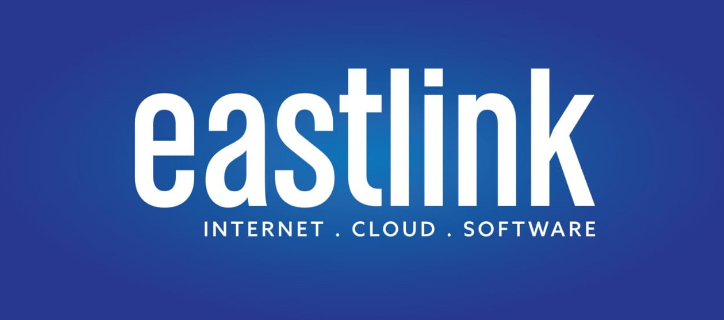The hot summer months are here, but WordPress is not taking any time off.
Many things are happening in the world of WordPress that will likely set the scene for the future development of the platform. Particularly, block themes are getting more attention in July. There’s also a new proposal to build a plugin checker tool for developers. But that’s not all, keep reading to learn about:
1. Gutenberg update
2. WordPress themes directory adds block themes filter to menu
3. New plugin for creating block themes
4. Proposal for a new plugin checker tool
5. Call to help test the ‘rollback update failure’ feature plugin
6. WPForms acquires Pirate Forms plugin
7. WordCamp Asia 2023 calls for speakers
Gutenberg update
Continuing the two-week-release cycle, the team released Gutenberg 13.6 on July 6, 2022. This version comes with a few new features, several small enhancements, a number of accessibility improvements, and 26 bug fixes.
Notable additions include:
1. The addition of the pattern modal for users when they create content with a custom post type. WordPress 6.0 introduced a feature that allows patterns to appear in a modal every time a user creates a new page or post. Gutenberg 13.6 expands on this feature, allowing the same modal to be presented to a user on other post types.
2. Additional template types in the site editor. Users can now create a template for a post of a specific post type, and a template for a specific post. The UI to handle this is quite simple, so the team expects users to have a fairly easy time working with it.
WordPress themes directory adds block themes filter to menu
Users can now filter for block-based themes on the WordPress themes directory. This is an effort from contributors to bring more visibility to block themes.
It’s a bit of a strange time in the world of WordPress themes, especially with the platform’s push to full-site editing. Many of the new features from full-site editing can only be utilized using a block-based theme. But this poses an issue for users when looking to get a new theme, as they would need to choose a block theme for future-proofing. Previously, there wasn’t a quick way to know which themes are block-based without diving into the theme’s descriptions.
Additionally, by bringing more visibility to block themes, WordPress.org hopes to encourage the community to develop more block themes. As part of WordPress’s big picture goals for 2022, WordPress Executive Director Josepha Haden-Chomphosy set 500 block themes as a goal for the community. At the time of publishing, there are only 99 block themes in the theme directory, which equals roughly 1% of the total number of themes available.
A new plugin for developing block-based theme
A group of eight full-time contributors recently released a plugin named Create Block Theme. It allows users to create block themes and child themes right inside the WordPress admin. Users can design their own themes with full-site editing and export their finished products that can be installed on any WordPress site.
The Create Block Theme plugin makes designing a WordPress theme much easier and more approachable, especially for those who are not developers. It has the potential to increase the number of block themes available in the theme directory, which facilitates WordPress’s goal of having 500 block themes by the end of the year.
Proposal for a new plugin checker tool
WordPress’s Performance team is drafting a proposal for developing a plugin checker tool. This is to ensure that new plugins are meeting the latest standards and best practices.
The team is proposing to build a plugin that would flag any violations of the plugin development requirements and suggest best practices with errors or warnings. “It should cover various aspects of plugin development, from basic requirements like correct usage of internationalization functions to accessibility, performance, and security best practices” – said Google-sponsored contributor Felix Arntz.
The proposal’s received mixed reactions so far. Some participants in the discussion welcome the development of such a tool, stating that they are excited to use it in their workflow. On the opposite side, some participants worry about the checks being too forceful and can negatively affect the plugin ecosystem.
At this stage, feedback from the community is crucial, especially from plugin developers, reviewers, and the meta team. If they are able to reach a consensus, then the next step is to design the infrastructure to develop the tool in a GitHub repository.
WPForms acquires Pirate Forms plugin
Themeisle, the company behind the popular themes Hestia and Neva, announced on July 4, 2022, that its Pirate Forms plugin had been acquired by WPForms.
Pirate Forms was released in 2015 and gained popularity thanks to its simplicity, allowing users to easily add forms to contact pages without any setup needed. Now in 2022, the team behind the plugin believes they don’t have enough resources to make it as powerful as they would like. For that reason, Themeisle decided to sell Pirate Forms to WPForms, a well-known ‘form builder’ plugin.
Pirate Forms users should look to migrate to WPForms soon, as support for the plugin will cease after 6 months of the acquisition. Additionally, Themeisle membership users are now eligible to get a one-year license of WPForms Pro for no extra pay.
Call to help test the ‘rollback update failure’ feature plugin
The developers of the ‘Rollback Update Failure’ feature plugin put out a call for testing. The goal of the plugin is to offer a safety mechanism in the WordPress core for when updates or auto-updates fail.
For most WordPress users, successful updates should be the standard experience. However, many things can happen when users install a new update, whether it’s an update to their plugin, theme, or the WordPress core. Things may conflict with each other, which may affect the user experience on the site. Or worse, it can even make the site utterly unusable. Instead of leaving the user’s site in a broken state, the ‘rollback update failure’ feature will restore the site to a usable state.
The team aims to get this feature included in WordPress 6.1. At the moment, the feature comes in the form of a plugin. But if it gets enough testing, then the feature may get enough momentum to be included in the core of WordPress 6.1.
WordCamp Asia 2023 looking for speakers
Due to the Covid-19 situation in Asia, the first flagship WordCamp for the region has been postponed since 2020. The event, originally planned for February 2020, finally got a green light.
WordCamp Asia will take place February 17-19, 2023 at IconSiam in Bangkok Thailand. The organizers have put out a call to look for speakers. They are looking for “diverse topics and inspirational stories.” Additionally, the organizers stated that they do not intend to approve first-time or inexperienced speakers. Applicants will need to include at least one video link of a talk they did in their applications.
If you’re interested in becoming a speaker for WordCamp Asia 2023, contact the organizers now.
If you want to take your WordPress website to a new level, sign up for a Bluehost hosting package or our Blue Sky service to get in-depth WordPress assistance today.












